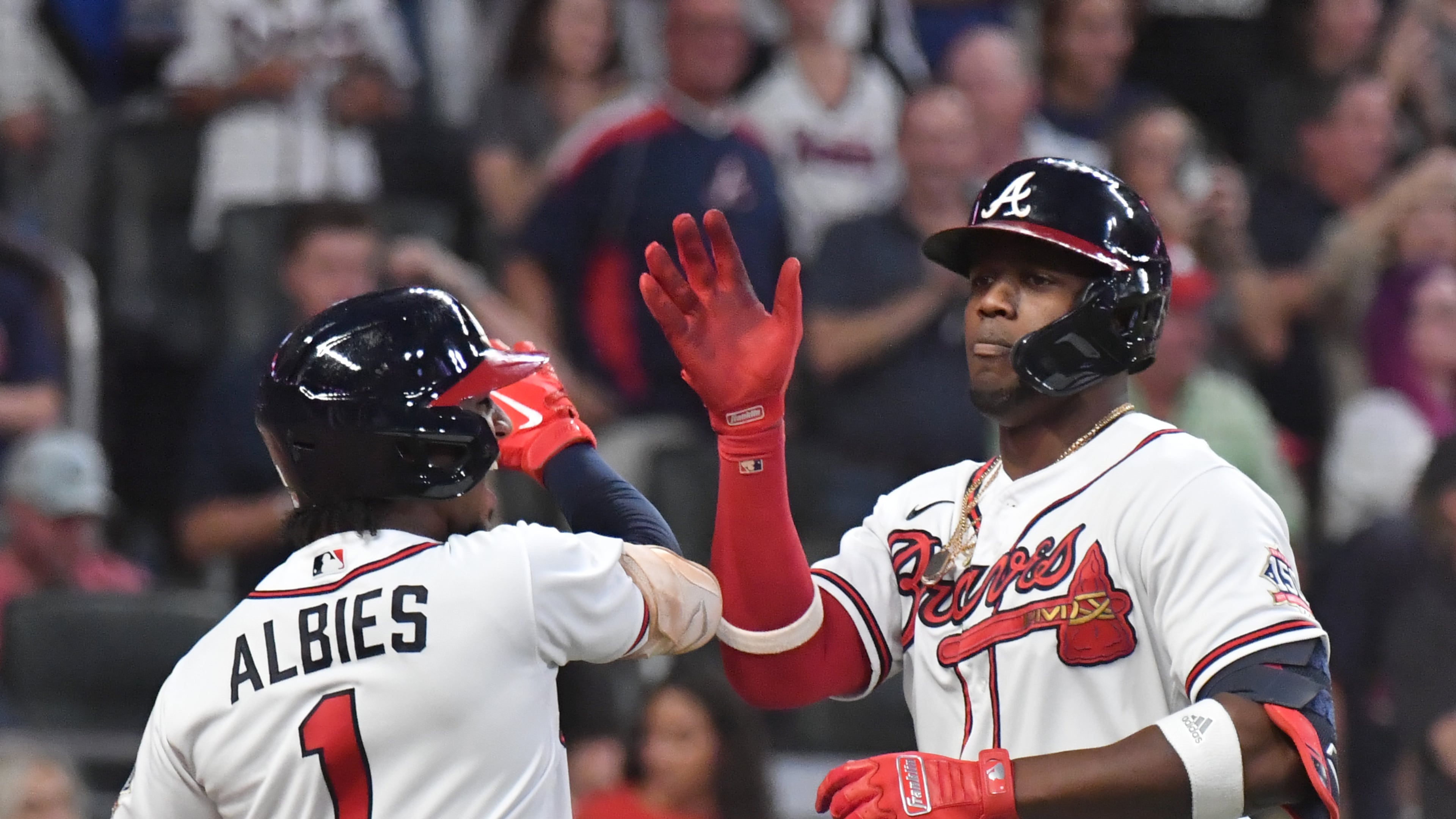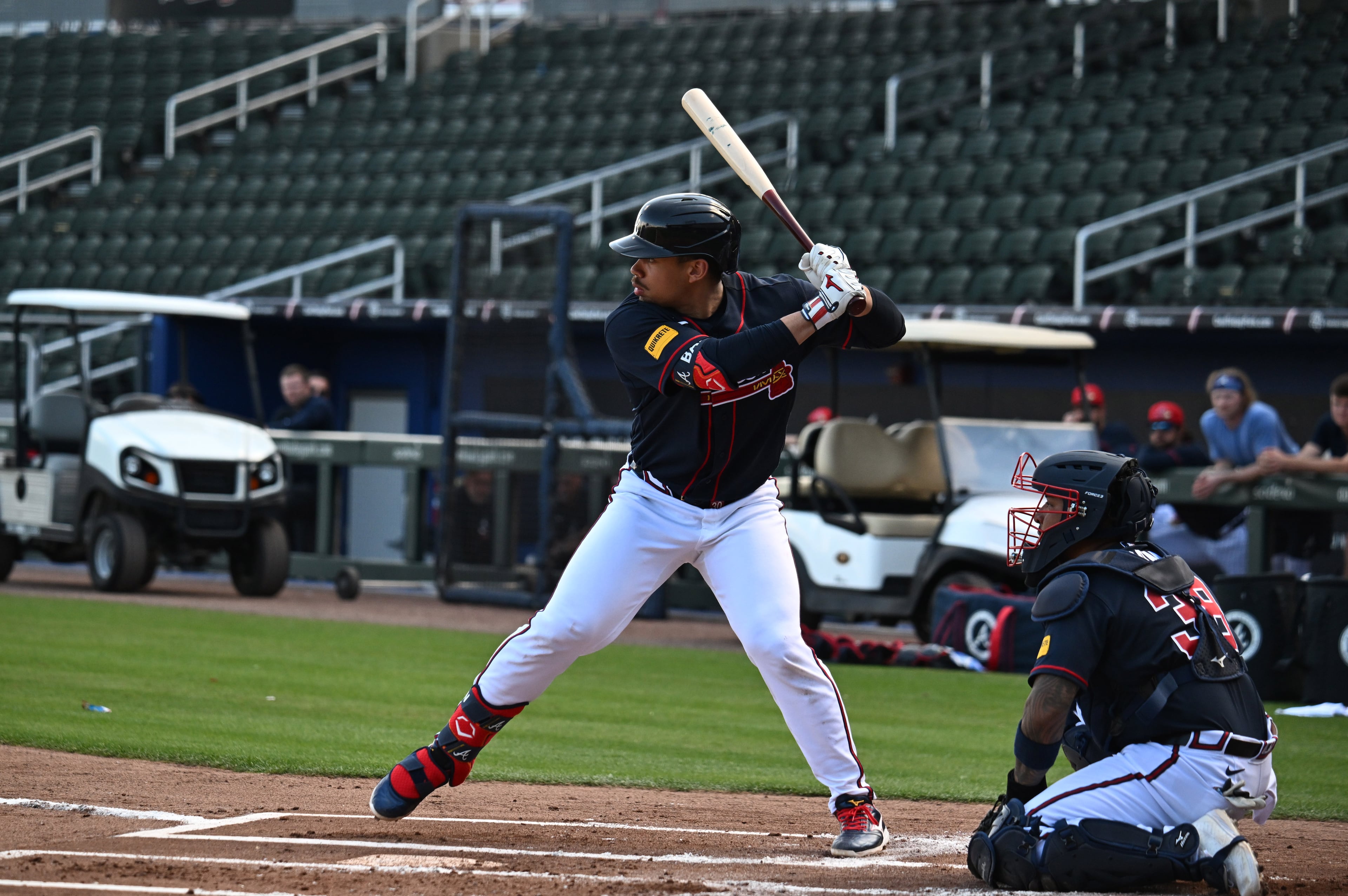What Braves need to do to win vs. Brewers

The Braves slugged their way to a fourth consecutive division crown, a feat largely made possible by their acquisitions during one of the most successful trade deadlines in franchise history. It set up a National League Division Series against the Brewers, whose 95 victories allowed them to cruise to the NL Central crown.
Milwaukee is well-rounded and fundamentally sound, so the Braves will need every facet of their team clicking in what’s expected to be a tight series. Fortunately for the Braves, they have the personnel to win in a variety of ways.
It isn’t difficult to envision Milwaukee’s star-studded pitching suppressing the Braves’ power-laden offense, at least to some degree. But the Braves’ group presents a challenge for any pitching staff. Their 238 homers ranked third in the majors. Their 785 runs and .755 OPS ranked eighth.
Armed with one of the best power-hitting infields in MLB history, and bolstered by deadline acquisitions such as sluggers Adam Duvall and Jorge Soler, the Braves are stacked with mashers. But that isn’t their only way of winning, and while few teams boast top-of-the-rotation pitchers who can compete with the Brewers’ group, the Braves are one of them.
Charlie Morton will start Game 1. The 37-year old met or surpassed every expectation in his first season back with the Braves, going 14-6 with a 3.34 ERA in 33 starts. Morton’s postseason resume speaks for itself: a 3.38 ERA in 13 postseason appearances (12 starts). Just a year ago, he helped the Rays to a World Series appearance.
Max Fried, meanwhile, was even better than Morton down the stretch. In fact, he was better than everyone else: His 1.74 ERA in the second half ranks best in the majors. In his last three starts, which included a complete game shutout, Fried had a 0.39 ERA with a 15:1 strikeout-to-walk ratio over 23 innings – when the Braves needed him most.
Ian Anderson, 23, will start Game 3. Anderson allowed three runs on five hits over his last two starts (13 innings). He’s further distanced from shoulder inflammation that cost him six weeks. Anderson has already proven up to the postseason stage, posting a 0.96 ERA in four playoff starts last October.
The Braves need each of them at their best against the Brewers’ vaunted rotation. It starts with Cy Young contender Corbin Burnes, who’s been remarkably consistent in 2021. Burnes won the ERA title (2.43), becoming the first Brewer to do so, and struck out 224 in 167 innings.
Behind Burnes is Brandon Woodruff (9-10, 2.56) and Freddy Peralta (10-5, 2.81), giving the Brewers arguably baseball’s best rotation trio. All-Star Josh Hader (1.25 ERA, 99 strikeouts in 59 appearances) awaits at the back of the bullpen. Hader is commonly considered MLB’s most dominant reliever. Those picking the Brewers will point to that quartet of pitchers.
As spectacular as that pitching is, the Braves’ offense could still give it issues. The obvious benefit of having a power-loaded lineup is keeping the opposition on its toes. One through eight in the order, one misplaced pitch could easily be planted in the seats. The Braves have shown time and again they can flip the game on a whim. The margin for error pitching against the Braves is extremely small.
The Braves need their star position players to be stars. First baseman Freddie Freeman hit .279 with three doubles, two homers and seven RBIs in 12 games last postseason. As always, there will be a focus on “MVFree.” Third baseman Austin Riley, recently voted Braves player of the year by the Atlanta baseball writers, is just as important. He was the team’s best player this season.
Freeman and Riley are two of the 10 most potent players in the NL. They’re complemented by second baseman Ozzie Albies, already a franchise-great power-speed threat, and players such as Soler and Duvall, who’ve perfectly supplemented the team since July 30. Shortstop Dansby Swanson will be a key player, whether it’s setting up hitters atop the order or coming through with one of his clutch hits.
Milwaukee’s offense doesn’t come close to the Braves’ firepower. The Brewers were 11th in runs scored (735) and 18th in homers (194). They had only three players reach the 20-homer mark; the Braves had seven. The Brewers’ .713 OPS ranked 20th. If the Braves can build early leads, they’ll put pressure on the Brewers’ offense.
The Braves’ bullpen has outperformed the Brewers’, posting a 3.6 fWAR to Milwaukee relievers’ 3.2 fWAR. Hader is brilliant, but the Braves have Luke Jackson, who’s arguably been the second-best reliever in the NL this season. Braves closer Will Smith looms large here – the Braves can’t afford their closer living on the edge in October. Smith is a pivotal player in the series.
The Brewers will be slightly favored, but plenty will express a belief in the Braves. The series feels closer than the seven-win difference between the clubs’ final record. Like every coin-flip series, it will come down to clutch hitting – who converts in those two-on, two-out situations. Both teams have strong starting pitching and solid bullpens, which could set up some low-scoring games. The biggest separator between the teams is the Braves having a sizable advantage offensively. We’ll see if that comes into play.



